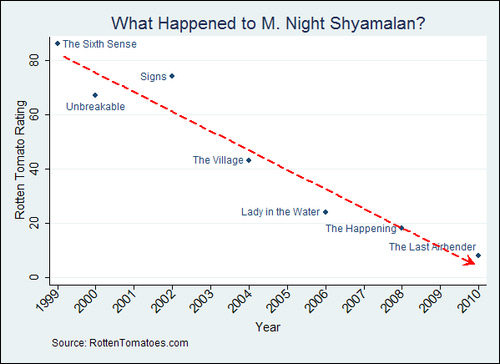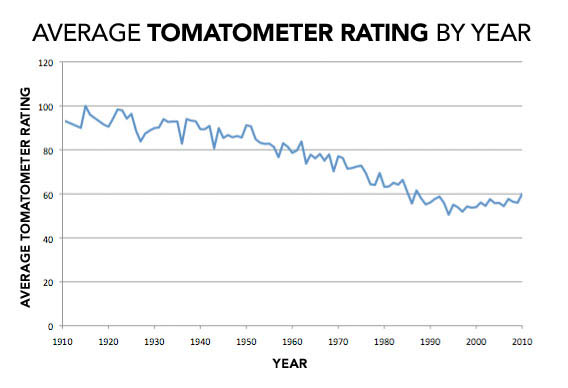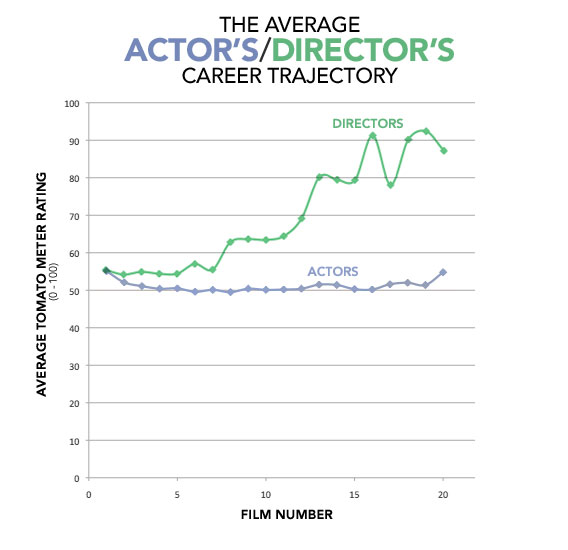spiderman123
Member
When M. Night Shyamalan's The Last Airbender came out in July 2010, critics competed to see who could muster the most scorn. Shyamalan's seventh film was "dull, boring, poorly acted, limply written, and thoroughly unappealing" (San Francisco Chronicle), and "tiff, fuzzy-looking, cloddish and disastrous in nearly every way" (Detroit News). In the Wall Street Journal, Joe Morgenstern called it "a form of Chinese water torture in which tin-ear line-readings take the place of drips." "The current national priorities should be as follows," wrote Cliff Doerksen in the Chicago Reader. "Reduce carbon emissions and stop funding the films of M. Night Shyamalan."
Perhaps the most devastating critiqueof not just the movie but of Shyamalan himselfwas a simple graph plotting the Rotten Tomatoes scores of the director's movies over time, posted by Alex Tabarrok at the economics blog Marginal Revolution:

What makes the data from Rotten Tomatoes so brutal is that they depict not just one person's opinion of Shyamalan but the collective assessment of all our cultural critics. (The scores are based on aggregated reviews.) You may still run into the occasional Shyamalan defender, but as the graph shows, their numbers dwindle with every new film he makes. Rotten Tomatoes data reveal other trends, too. They show you how Brad Pitt went from being a regular starthe kind of Hollywood actor who appears in some good films and some bad onesto a critical darling whose movies are almost always well-received. (It started with Babel in 2006.) Or how Matt Damon has made consistently better films than Ben Affleck since 1997, when the pair starred in Good Will Hunting.
The Rotten Tomatoes website, created in 1999, aggregates reviews from hundreds of newspapers and websites across the country, converts each review into a thumbs-up ("fresh") or thumbs-down ("rotten") rating, and then combines those assessments into a single "Tomatometer" rating that gives the percentage of positive reviews. The site even aggregates archived reviews from films that were released in the 1990s and before. Whether you're looking at contemporary cinema or the classics, the Tomatometer can serve as shorthand for a film's critical reception, if not its box office success.
A visitor to the Rotten Tomatoes site can check out the data for individual Hollywood careersthat's how Tabarrok came up with the Shyamalan graphbut there's no easy way for users to measure industrywide trends or to compare different actors and directors side-by-side. To that end, Rotten Tomatoes kindly let Slate analyze the scores in its enormous database and create an interactive tool so our readers might do the same.
The first thing we learned was that a film's Tomatometer rating is strongly influenced by its age. Films from the 1920s, for instance, have an average Tomatometer rating around 91 percent, while films from the 1990s average around 55 percent. Movies might have gotten worse since the Great Depression, but not that much worse. The golden-oldies effect may be explained by a bias toward reviewers reviewing, or Rotten Tomatoes scoring, only the best movies from bygone eras. Rotten Tomatoes includes a score for Casablanca from 1942, for example, but leaves out clunkers from the same year like The Corpse Vanishes and Lady Gangster.

Long Read and at the ending looks at actor / director career
OOps forgot source : http://www.slate.com/id/2296070/













